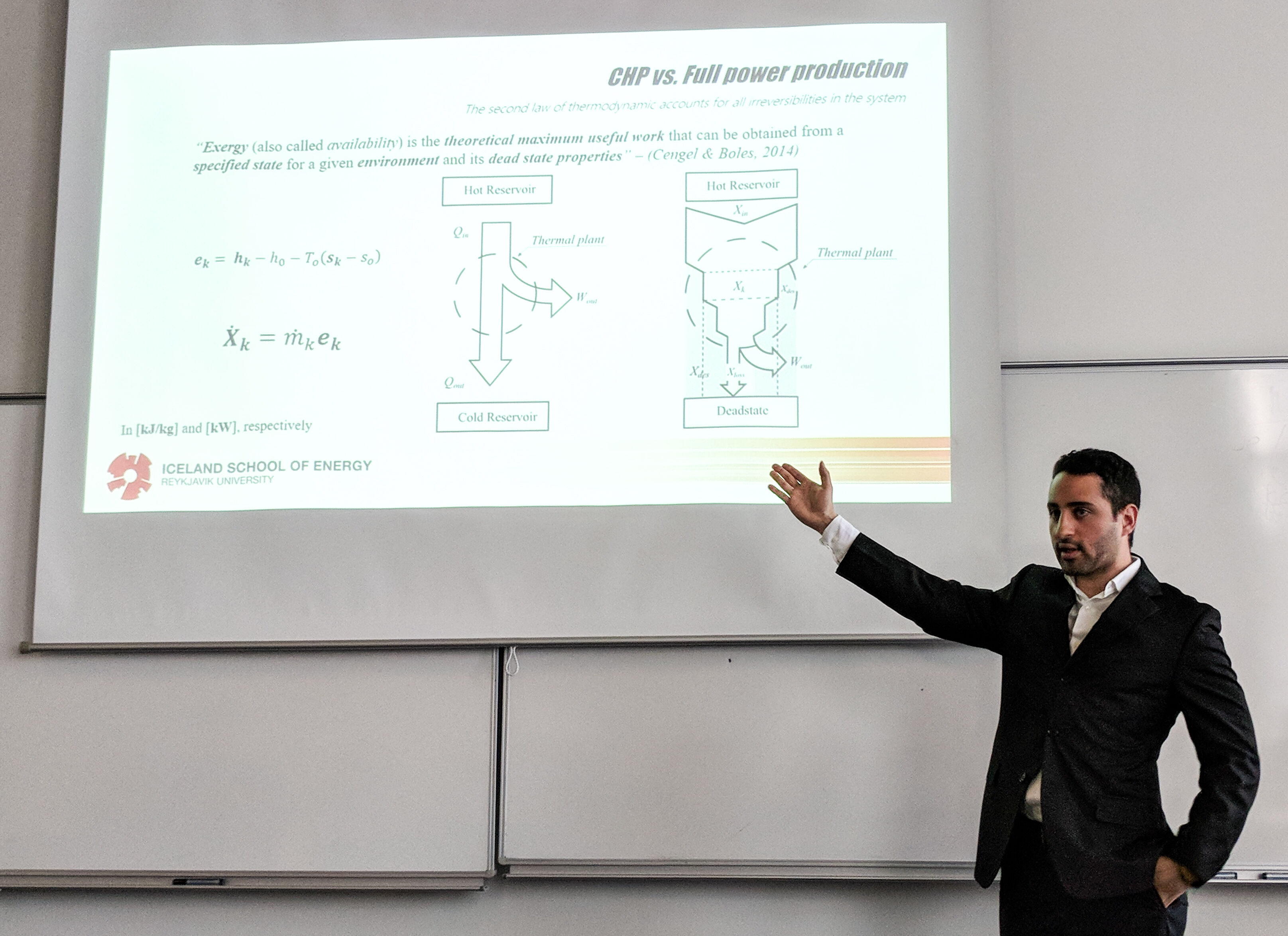MSc Thesis: Thermo-economic analysis of EGS/Deep Geothermal Resources in the region of Alsace, France
Emmanuel Cabral successfully defended his master's thesis
REYKJAVIK, June 15 - Emmanuel Cabral, MSc in Sustainable Energy Engineering at ISE, has successfully defended his master's thesis project in the thermo-economic analysis of Enhanced Geothermal System (EGS) or deep geothermal resources in the Alsace region in France. As with several other ISE students, Emman had the opportunity to conduct his research abroad. For Emman, he spent half a year at the INSA-Strasbourg (National Institute of Applied Sciences) in France. His thesis project was supervised by Páll Valdimarsson and William S. Harvey from Reykjavik University.

To give the audience a context for his project, Emman explained that there are currently three geothermal projects in the Alsace region in development by two companies, Fonroche Géothermie and L'Electricié de Strasbourg (ES). These companies have the same goal: to utilise the geothermal energy stored deep at 5 km below the earth's surface. Emman’s research objective is to analyse and compare the feasibility of implementation of one binary power plant, one cogenerating unit, or cascading applications only in this area. Cascading applications that have been proposed include beet sugar production, beer production, dairy processing, hop drying, greenhouse heating, cereal drying, bioethanol distillation, wine distillation, microalgae production and drying, pool heating, and fish farming.
Emman then discussed the thermodynamic analysis of a binary power plant and a combined production plant in Vendeheim. In particular, he analysed the second law efficiency and exergy flow through the system. The second law of thermodynamics states that as entropy increases the available energy in the system decreases. Therefore, the real efficiencies of a system have to be addressed from the second law (exergetic) point of view as opposed to the first law (energetic) point of view. Exergy in a system is the theoretical maximum work possible done by a system relative to it's environment. When Emman compared the exergy efficiencies of a Combined Heat and Power system (CHP) and a full power binary plant the results show that the efficiencies decrease significantly when a cascading scenario is introduced.
Finally, Emman presented a thermoeconomic analysis for the full power production scenario, which was shown to possess higher efficiency. His results show that the proposed power plant in Vendeheim would produce 7.2 MW of work at the turbine and the unit value of electricity is considerably lower than current government incentives in the region, showing room for profit in his proposal. To further read on Emman’s work, please visit the following link .
Congratulations, Emman for an excellent thesis!
